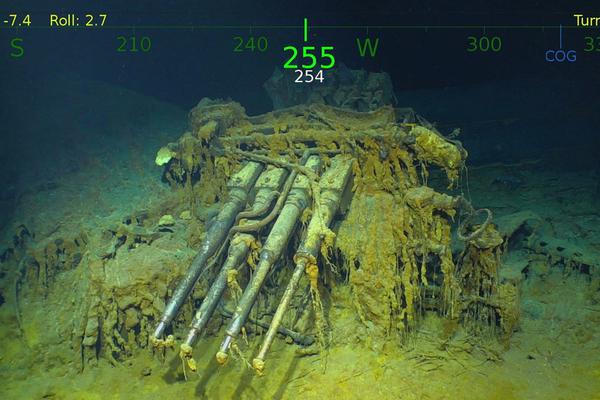
1. The five functions of the operating system are processor management, memory management, device management, file management and job management. Processor management The most basic function of processor management is to process interrupt events. After configuring the operating system, various events can be processed.
2. The main function of the computer operating system is process management, and its work is mainly process scheduling. In the case of a single user and a single taskNext, the processor is only monopolized by one user's task, and the process management work is very simple.
3. Operating System (abbreviation: OS) is a group of interrelated system software programs that supervise and control computer operation, use and run hardware, software resources and provide public services to organize user interaction.
4. Five major management functions of the operating system: (1) Job management: including tasks, interface management, human-computer interaction, graphical interface, voice control and virtual reality, etc. ( 2) File management: also known as information management. ( 3) Storage management: The essence is the management of storage "space", which mainly refers to the management of the main memory.
Any information system has five basic functions, namely: information collection and recording (input); information storage; information processing; information transmission; information output .
According to the functional introduction of the information system, the information system has five basic functions: input, storage, processing, output and control. Different functions have different functions, such as input function: the input function of the information system is determined by the purpose to be achieved by the system, the ability of the system and the permission of the information environment.
Five basic functions of the information system: input, storage, processing, output and control. Input function: The input function of the information system is determined by the purpose to be achieved by the system, the ability of the system and the permission of the information environment.Storage function: Storage function refers to the ability of the system to store various information and data. Mainly including: statistical functions.
The operating system has five functions: processor management: mainly controls and manages the work of the CPU. Storage management: mainly allocate and manage memory. Device management: mainly manage basic input and output devices. File management: responsible for the organization, storage, operation and protection of computer files.
The functions of the computer operating system include: processor management, memory management, device management, file management, job management and other functional modules. Processor management. The most basic function of processor management is to handle interrupt events. The processor can only detect interrupt events and generate interrupts and cannot process them.
The main function of the computer operating system is process management, and its main work is process scheduling. In the case of a single user and a single task, the processor is only monopolized by one user's task, and the work of process management is very simple.
The main functions of the operating system are process and processor management, job management, storage management, device management and file management, as follows: process and processor management. Because the execution of the program must rely on the processor, only one program flow can be processed and executed at any time. Homework management.
I) Processor management The most basic function of processor management is to handle interrupt events. The processor can only detect interrupt events and generate interrupts, and cannot handle these interrupt events. After configuring the operating system, all types of events can be handled.Another function of processor management is processor scheduling.
Five management functions of the operating system: job management: including tasks, interface management, human-computer interaction, graphical interface, voice control and virtual reality, etc. File management: also known as information management. Storage management: The essence is the management of storage "space", which mainly refers to the management of the main memory.

The storage management function of the operating system is to manage memory resources. It mainly realizes memory allocation and recovery, storage protection and memory expansion. The device management of the device management operating system is responsible for allocating and recycling external devices, and controlling external devices to operate according to the requirements of user programs.
The functions of the computer operating system include: processor management, memory management, device management, file management, job management and other functional modules. Processor management. The most basic function of processor management is to handle interrupt events. The processor can only detect interrupt events and generate interrupts and cannot process them.
The five functions of the operating system are processor management, memory management, device management, file management and job management.Processor management The most basic function of processor management is to process interrupt events. After configuring the operating system, various events can be processed.
UEFA TV-APP, download it now, new users will receive a novice gift pack.
1. The five functions of the operating system are processor management, memory management, device management, file management and job management. Processor management The most basic function of processor management is to process interrupt events. After configuring the operating system, various events can be processed.
2. The main function of the computer operating system is process management, and its work is mainly process scheduling. In the case of a single user and a single taskNext, the processor is only monopolized by one user's task, and the process management work is very simple.
3. Operating System (abbreviation: OS) is a group of interrelated system software programs that supervise and control computer operation, use and run hardware, software resources and provide public services to organize user interaction.
4. Five major management functions of the operating system: (1) Job management: including tasks, interface management, human-computer interaction, graphical interface, voice control and virtual reality, etc. ( 2) File management: also known as information management. ( 3) Storage management: The essence is the management of storage "space", which mainly refers to the management of the main memory.
Any information system has five basic functions, namely: information collection and recording (input); information storage; information processing; information transmission; information output .
According to the functional introduction of the information system, the information system has five basic functions: input, storage, processing, output and control. Different functions have different functions, such as input function: the input function of the information system is determined by the purpose to be achieved by the system, the ability of the system and the permission of the information environment.
Five basic functions of the information system: input, storage, processing, output and control. Input function: The input function of the information system is determined by the purpose to be achieved by the system, the ability of the system and the permission of the information environment.Storage function: Storage function refers to the ability of the system to store various information and data. Mainly including: statistical functions.
The operating system has five functions: processor management: mainly controls and manages the work of the CPU. Storage management: mainly allocate and manage memory. Device management: mainly manage basic input and output devices. File management: responsible for the organization, storage, operation and protection of computer files.
The functions of the computer operating system include: processor management, memory management, device management, file management, job management and other functional modules. Processor management. The most basic function of processor management is to handle interrupt events. The processor can only detect interrupt events and generate interrupts and cannot process them.
The main function of the computer operating system is process management, and its main work is process scheduling. In the case of a single user and a single task, the processor is only monopolized by one user's task, and the work of process management is very simple.
The main functions of the operating system are process and processor management, job management, storage management, device management and file management, as follows: process and processor management. Because the execution of the program must rely on the processor, only one program flow can be processed and executed at any time. Homework management.
I) Processor management The most basic function of processor management is to handle interrupt events. The processor can only detect interrupt events and generate interrupts, and cannot handle these interrupt events. After configuring the operating system, all types of events can be handled.Another function of processor management is processor scheduling.
Five management functions of the operating system: job management: including tasks, interface management, human-computer interaction, graphical interface, voice control and virtual reality, etc. File management: also known as information management. Storage management: The essence is the management of storage "space", which mainly refers to the management of the main memory.

The storage management function of the operating system is to manage memory resources. It mainly realizes memory allocation and recovery, storage protection and memory expansion. The device management of the device management operating system is responsible for allocating and recycling external devices, and controlling external devices to operate according to the requirements of user programs.
The functions of the computer operating system include: processor management, memory management, device management, file management, job management and other functional modules. Processor management. The most basic function of processor management is to handle interrupt events. The processor can only detect interrupt events and generate interrupts and cannot process them.
The five functions of the operating system are processor management, memory management, device management, file management and job management.Processor management The most basic function of processor management is to process interrupt events. After configuring the operating system, various events can be processed.
UEFA Champions League live streaming app
author: 2025-02-05 23:35App to watch Champions League live free
author: 2025-02-05 21:43Hearthstone Arena class tier list 2024
author: 2025-02-05 21:16100 free bonus casino no deposit GCash
author: 2025-02-05 22:22 100 free bonus casino no deposit GCash
100 free bonus casino no deposit GCash
998.42MB
Check Casino Plus free 100
Casino Plus free 100
817.65MB
Check Hearthstone arena
Hearthstone arena
643.76MB
Check Arena plus APK
Arena plus APK
372.86MB
Check UEFA live free
UEFA live free
916.46MB
Check Arena Plus login
Arena Plus login
911.66MB
Check DigiPlus
DigiPlus
779.51MB
Check Walletinvestor digi plus
Walletinvestor digi plus
371.94MB
Check UEFA Champions League live streaming app
UEFA Champions League live streaming app
921.71MB
Check UEFA Europa League
UEFA Europa League
395.53MB
Check UEFA Champions League standings
UEFA Champions League standings
314.63MB
Check Hearthstone Wild Decks
Hearthstone Wild Decks
167.77MB
Check DigiPlus stock
DigiPlus stock
991.33MB
Check Europa League app
Europa League app
791.36MB
Check Hearthstone Wild Decks
Hearthstone Wild Decks
539.63MB
Check Casino Plus app
Casino Plus app
741.84MB
Check UEFA Champions League
UEFA Champions League
158.12MB
Check UEFA TV
UEFA TV
245.38MB
Check bingo plus update today
bingo plus update today
812.57MB
Check Casino Plus app
Casino Plus app
693.35MB
Check Hearthstone Arena win rate
Hearthstone Arena win rate
764.25MB
Check Casino Plus app
Casino Plus app
924.64MB
Check Bingo Plus
Bingo Plus
475.52MB
Check bingo plus update today Philippines
bingo plus update today Philippines
611.48MB
Check LR stock price Philippines
LR stock price Philippines
955.32MB
Check Bingo Plus
Bingo Plus
251.29MB
Check Arena plus APK
Arena plus APK
382.81MB
Check LR stock price Philippines
LR stock price Philippines
885.43MB
Check Casino redeem
Casino redeem
581.67MB
Check UEFA Champions League live streaming app
UEFA Champions League live streaming app
485.24MB
Check Casino Plus app
Casino Plus app
773.85MB
Check Hearthstone arena
Hearthstone arena
728.25MB
Check Hearthstone arena deck Builder
Hearthstone arena deck Builder
925.67MB
Check DigiPlus Philippine
DigiPlus Philippine
566.58MB
Check App to watch Champions League live free
App to watch Champions League live free
818.76MB
Check Champions League
Champions League
793.82MB
Check
Scan to install
UEFA TV to discover more
Netizen comments More
842 Champions League
2025-02-05 23:52 recommend
1976 Casino free 100 no deposit
2025-02-05 23:41 recommend
2993 Arena Plus login
2025-02-05 23:15 recommend
2949 bingo plus update today
2025-02-05 22:04 recommend
2904 UEFA live free
2025-02-05 21:41 recommend